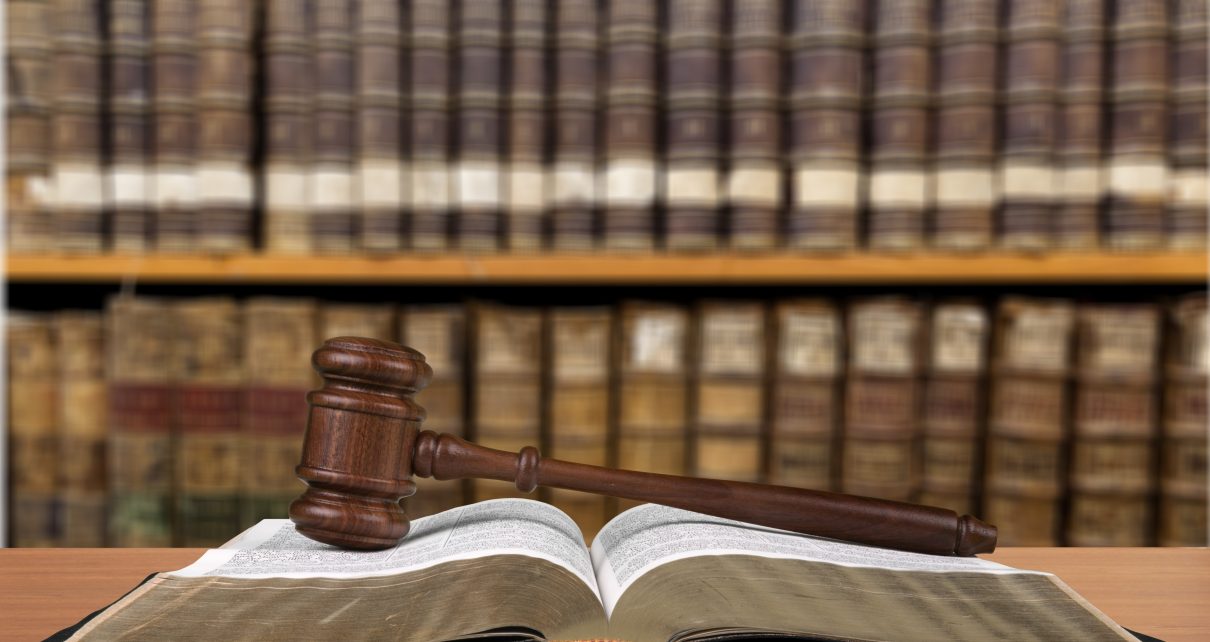
Legal System. (Photo: Billion Photos/Shutterstock)
Conduct of the Trial in a Civil Action
Either party may require the jury to be polled, which is done by the court or clerk
By Chris Micheli, December 22, 2024 2:33 am
Code of Civil Procedure Part 2, Title 8 deals with the trial in civil actions. Chapter 4, Article 2 concerns the conduct of the trial.
Section 607 provides, when the jury has been sworn, the trial must proceed in the specified nine-step order, unless the court, for special reasons otherwise directs.
Section 607a states that, in every case which is being tried before the court with a jury, it is the duty of counsel for the respective parties, before the first witness is sworn, to deliver to the judge presiding at the trial and serve upon opposing counsel, all proposed instructions to the jury covering the law as disclosed by the pleadings.
Thereafter, and before the commencement of the argument, counsel may deliver to the judge, and serve upon opposing counsel, additional proposed instructions to the jury upon questions of law developed by the evidence and not disclosed by the pleadings. All proposed instructions are to be typewritten, each on a separate sheet of paper. Before the commencement of the argument, the court, on request of counsel, must decide on and advise counsel of the instructions to be given.
Section 608 allows the court to state to them all matters of law which it thinks necessary for their information in giving their verdict. The Court must furnish to either party, upon request, a statement in writing of the points of law contained in the charge, or sign, at the time, a statement of such points prepared and submitted by the counsel of either party.
Section 609 provides that, where either party asks special instructions to be given to the jury, the Court must either give the instruction as requested, or refuse to do so, or give the instruction with a modification, in such manner that it may distinctly appear what instructions were given in whole or in part.
Section 611 states, if the jury are permitted to separate, either during the trial or after the case is submitted to them, they are to be admonished by the court that it is their duty not to conduct research, disseminate information, or converse with, or permit themselves to be addressed by, any other person on any subject of the trial, and that it is their duty not to form or express an opinion thereon until the case is finally submitted to them. The court must clearly explain, as part of the admonishment, that the prohibition on research, dissemination of information, and conversation applies to all forms of electronic and wireless communication.
Section 612 specifies that, upon retiring for deliberation, the jury may take with them all papers which have been received as evidence in the cause, and they may also take with them any exhibits which the court may deem proper, notes of the testimony or other proceedings on the trial, taken by themselves or any of them, but none taken by any other person.
Section 612.5 provides that, upon the jury retiring for deliberation, the court is required to advise the jury of the availability of a written copy of the jury instructions. The court may, at its discretion, provide the jury with a copy of the written instructions given. However, if the jury requests the court to supply a copy of the written instructions, the court must supply the jury with a copy.
Section 613 states that, when the case is finally submitted to the jury, they may decide in court or retire for deliberation. If they retire, they must be kept together in some convenient place, under charge of an officer, until at least three-fourths of them agree upon a verdict or are discharged by the court.
Section 614 says that, after the jury have retired for deliberation, if there be a disagreement between them as to any part of the testimony, or if they desire to be informed of any point of law arising in the cause, they may require the officer to conduct them into Court. Upon their being brought into Court, the information required must be given in the presence of, or after notice to, the parties or counsel.
Section 614.5 states that, except for good cause shown, the judge in his or her discretion need not be present in the court while testimony previously received in evidence is read to the jury.
Section 616 provides that, if the jury are discharged without having rendered a verdict, or are prevented from giving a verdict, by reason of accident or other cause, during the progress of the trial, or after the cause is submitted to them, the action may be again tried immediately, or at a future time, as the court may direct.
Section 617 provides, while the jury are absent, the Court may adjourn from time to time, in respect to other business; but it is nevertheless open for every purpose connected with the cause submitted to the jury, until a verdict is rendered or the jury discharged.
Section 618 explains that, when the jury, or three-fourths of them, have agreed upon a verdict, they must be conducted into court and the verdict rendered by their foreperson. The verdict must be in writing, signed by the foreperson, and must be read to the jury by the clerk, and the inquiry made whether it is their verdict.
In addition, either party may require the jury to be polled, which is done by the court or clerk, asking each juror if it is the juror’s verdict. If upon inquiry or polling, more than one-fourth of the jurors disagree thereto, the jury must be sent out again, but if no disagreement is expressed, the verdict is complete and the jury discharged from the case.
Section 619 states that, when the verdict is announced, if it is informal or insufficient, in not covering the issue submitted, it may be corrected by the jury under the advice of the Court, or the jury may be again sent out.
- Mergers of Unincorporated Associations - February 21, 2026
- A Historic Look at Bill Introductions in the California Legislature - February 21, 2026
- Construction of Eminent Domain Law - February 21, 2026




One thought on “Conduct of the Trial in a Civil Action”